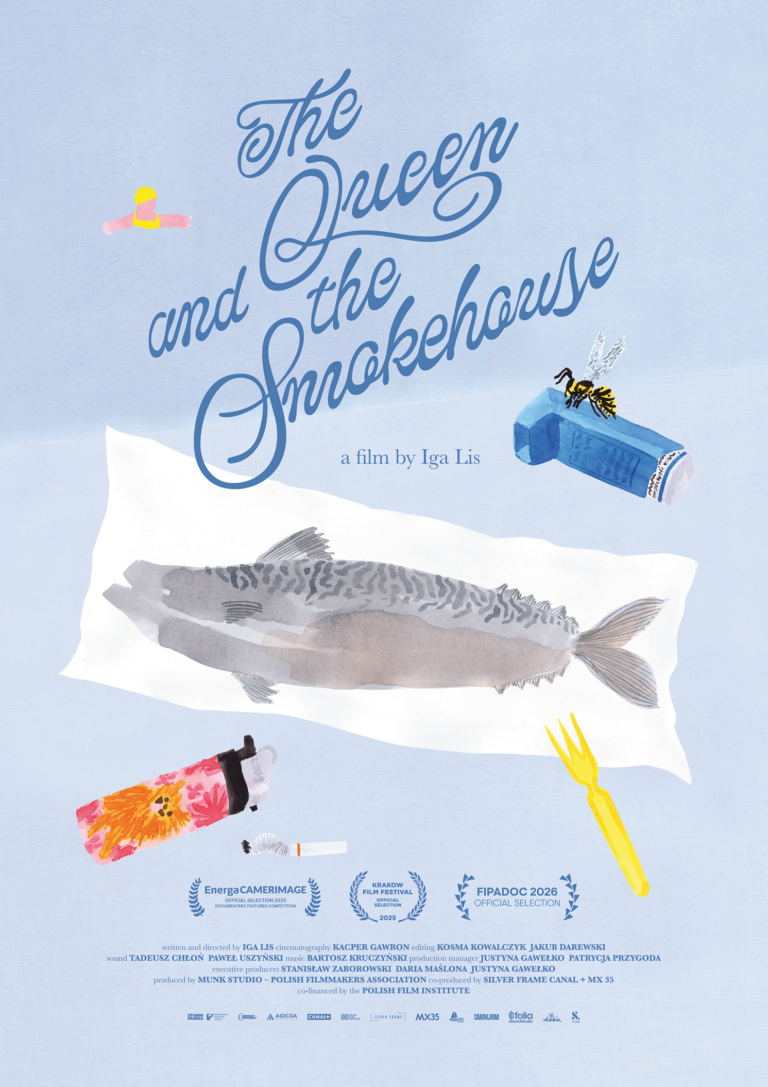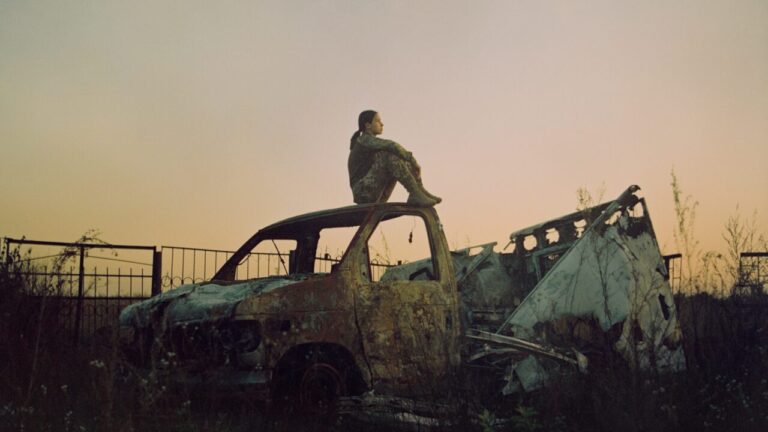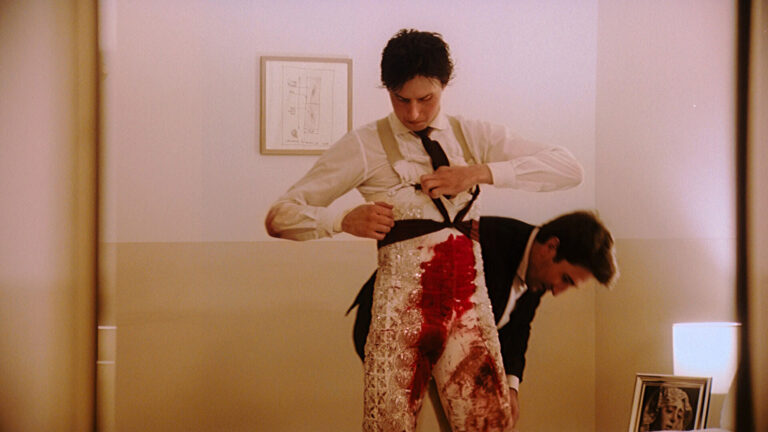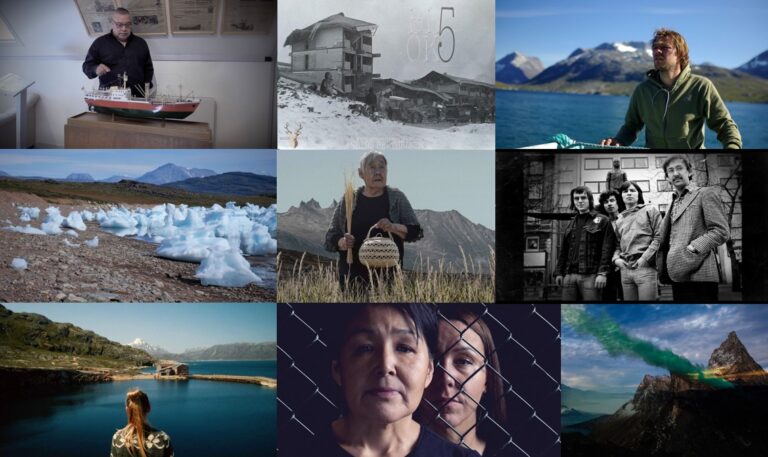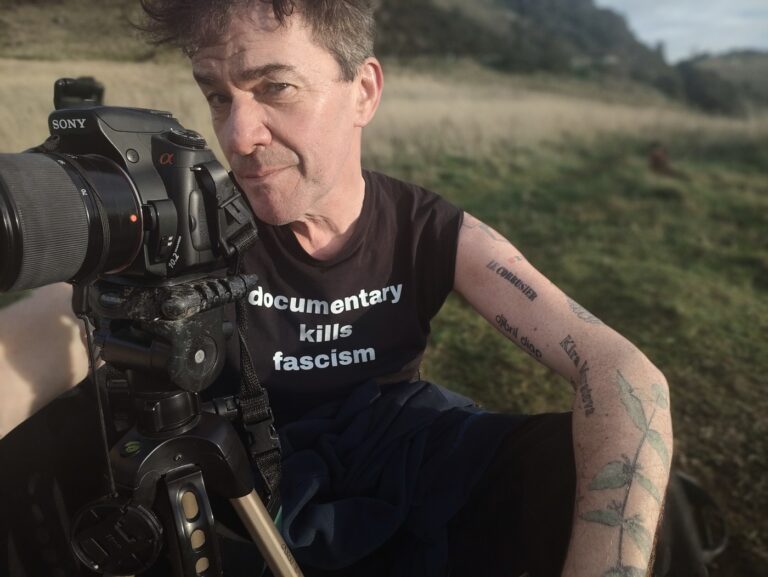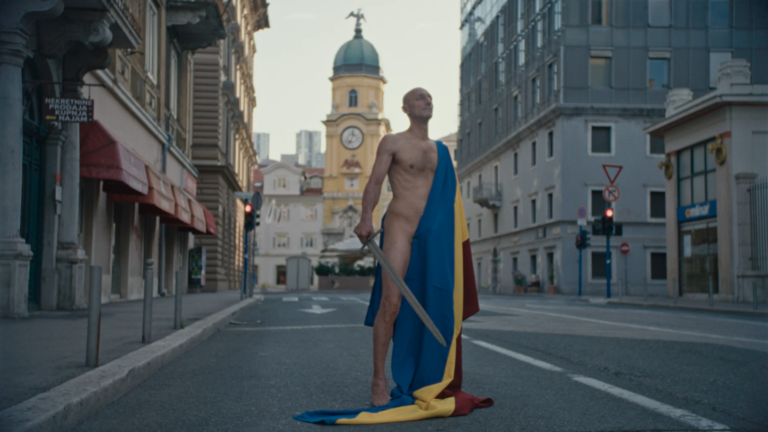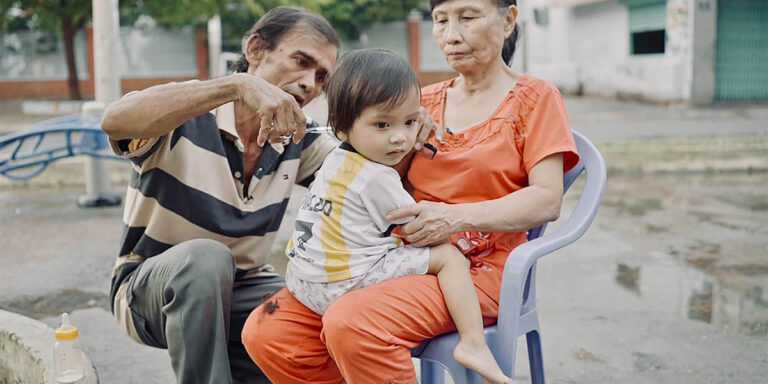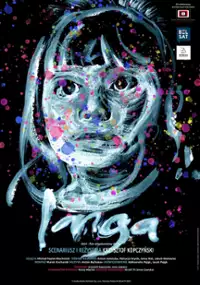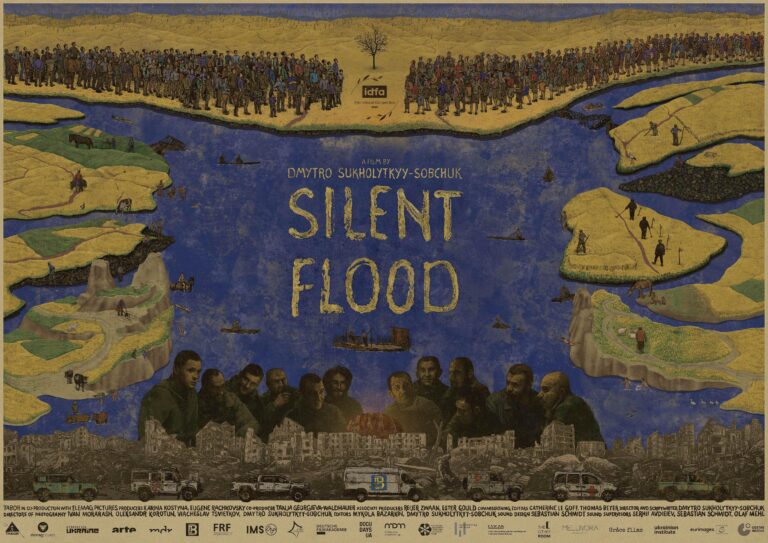With my interest in Latvian documentary films, that goes back to around 1990, where I was lucky to be one of a group that organised the Balticum Film & TV Festival on the island of Bornholm in Denmark, I wanted to know the nominees for the yearly Award ceremony of Lielais Kristaps (that means Big Christopher and there is a legend (AI Overview): that tells of a giant ferryman who carried Baby Jesus across the Daugava River, found gold, and helped build the city, i.e. Riga)
Thanks to long time dear friend Lelda Ozola, who was also on Bornholm and now serves as the EU Media representative (MEDIA DESK) at the Film Centre of Latvia, I got a translation of the huge number of nominations for the awards – the ceremony will take place on March 1. In the following I put the focus on the documentary section, where five titles are listed:
“Aizsniegt dzelmi” (Bored of Borders), dir. Kārlis Bardelis, Artūrs Valdmanis, prod. Līga Skrode This one I have not seen.
“Death of Death” (Frankenstein 2.0), dir. Dāvis Sīmanis, studio “Ego Media” (Latvia), prod. Guntis Trekteris, co-prod. Radim Prochazka, Kuli Film (Czech Republic) Dāvis Simanis is a filmmaker, whose career I have followed for decades. From early works like “Valkyrie Limited” and “Escaping Riga” to my favorite about the library in Riga “Chronicles of the Last Temple” and “D is for Division”. His appearences on this site are numerous and his talent is obvious. That also goes for this essay, where he has traveled the world to meet people, some wise, some seem more charlatans, who have researched how to fight, one says “kill” death. A research-wise impressive film that is too informative and clever for me… sorry Dāvis and Guntis Trekteris, saw it in Ji.hlava and today on my MacBook, it did not catch me.
“Art Born in Agony,” dir. Elizabete Gricmane, Ramunė Rakauskaitė, prod. Uldis Cekulis, VFS Films, co-prod. Arūnas Matelis, Studio Nominum (Lithuania). Juris Kulakovs, national legend, composer and musician is followed closely by the young director Elizabete Gricmane in playful sequences. Charismatic he is Kulakovs, who passed away in 2024.
“All Birds Sing Beautifully”, dir. Krista Burāne, prod. Ilze Celmiņa, Paula Jansone, “VFS Films”. I saw it today and I will use the same word, playful, entertaining and thoughtful as this quote says (Letterboxd): “In the beginning there was the forest. Then came the live performance, and then the film. The yellow wagtail, Eurasian skylark, white-backed woodpecker, corncrake and hazel grouse have not only gotten their voices back, but have taken on human form — clad in elegant tailcoats and bearing names — to recount ancient tales…” Beautiful singing, great cinematography of all the birds.
“The Last Will (Testament)”, (PHOTO) dir. Jānis Ābele, prod. Guntis Trekteris, “Ego Media”, co-prod. Jānis Ābele, Dita Birkenšteina, “Chaland films”. Looking for the ashes of legendary poet Anatols Imermanis, who never went to Paris to meet “professionals”… Two stories are hilarious and deserves to be mentioned: The female journalist, who interviewed him – that was his condition – naked, she said yes and was shocked, when he lifted the blanket… it was like the Tour Eiffel, she says! And his friend who brought in “half corona” cigars from the West through customs showing an official document claiming, that cigars was medicine for the poet to help his low blood pressure!!! Lovely, wonderful, entertaining.
BUT BUT BUT where is the masterpiece of Laila Pakalnina, “Scarecrow”, produced by Uldis Cekulis. A film that takes place at the Riga airport, where men and women are employed to take care of the wildlife that is active on the runaway. An homage to the people with that job, chasing rabbits and birds to protect them from the airplanes. When traveling to and from Riga, I now book a window seat to look out at the animals and people. Laila Pakalnina is a master, her films have a personal style, she has been to festivals all over and right now she is in Paris for a Baltic retro in la Cinématheque Francaise.
All right, she is on the list of nominees in the section of “Best Director” and her cinematographer Māris Maskalāns is nominated for best cinematography. And “Scarecrow” is also nominated for Best Composer and Best Sound. But for me “Scarecrow” would have been an obvious candiate for Best Film.
An important PS concerning the category Best Minority Co-Production, where I find two fine films that I have seen, both praised on this site:
“Redlight to Limelight”, dir. Bipuljit Basu, prod. Nilotpal Majumdar, “Bindubot Communication” (India), co-prod. Uldis Cekulis, “VFS Films” (Latvia), co-prod. John Webster, “JW Documentaries” (Finland)
“On Sacred and Profane”, dir. Giedre Beinorjūte, prod. Jurga Gluskiniene, Monoklis (Lithuania), co-prod. Elīna Gediņa-Ducena, Gints Grūbe, Mistrus Media (Latvia)
It pleases my “Baltic Heart” that there are so many coproductions between the three countries.



